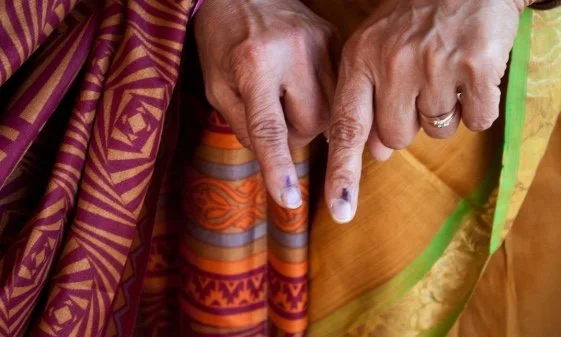Rahul Gandhi Accuses Election Commission of Enabling Voter Fraud in Haryana
Congress Claims 2.5 Million Fake Voters Affected 2024 Assembly Results in BJP’s Favour
November 5, 2025
The Leader of the Opposition, Rahul Gandhi, has accused the Election Commission of India (ECI) of facilitating mass voter fraud to benefit the ruling Bharatiya Janata Party (BJP) in the 2024 Haryana assembly election. Speaking at a press conference in New Delhi on November 5, Gandhi alleged that there were 2.5 million fake entries in the state’s voter rolls, saying the figure is significantly larger than the combined margin of BJP’s victories in key constituencies.
Gandhi released what he described as documentary evidence under the label “The H Files,” as reported by Hindustan Times. He claimed that the data showed duplication of voter records, including photographs repeated across hundreds of entries.
One example featured a photo of a woman he said is a Brazilian model. Gandhi claimed the same image had been used in multiple polling stations. He also presented records showing a single individual allegedly voting 22 times across 10 booths.
Haryana has a total electorate of around 20 million. According to Gandhi, one in eight voters on the rolls are fake, making up nearly 12 percent of the total. He said this discrepancy could have altered the outcome in at least eight seats where the BJP won with a combined margin of only 22,000 votes. The BJP secured 48 out of 90 seats in the assembly, while the Congress finished with 37. The Congress required 45 seats to reach the halfway mark. Several exit polls had predicted that the Congress would perform better.
The claims have emerged just before voting begins in Bihar. Gandhi appealed directly to young voters and urged them to pay attention to what he called a deliberate manipulation of democratic processes. He called the issue a threat to the future political rights of the younger generation.
Accusations of widespread duplication, if substantiated, affect more than the outcome of a single state election. They damage the credibility of the election regulator itself.
The ECI has constitutional independence. However, its recent record has drawn public scrutiny. Several parties have questioned the Commission’s decisions regarding electoral schedules, enforcement of the Model Code of Conduct and investigation of complaints. Gandhi’s claims build on that context.
The scale of voter roll manipulation he alleges would not be possible without administrative failure, or worse, administrative intent.
The concept of institutional capture becomes relevant here. It refers to a situation in which an institution that is meant to act independently is influenced or controlled by the political authority it is meant to regulate.
Historically, the ECI has been seen as a counterweight to executive power. That image was built during elections such as the 1993 assembly polls in Uttar Pradesh, where Chief Election Commissioner T.N. Seshan deployed central forces to prevent booth capturing, and the 2004 general election, where the Commission ordered the transfer of partisan officials in several states, including Gujarat and Rajasthan, to ensure fair conduct. Allegations like those made in this case suggest that such precedents are under pressure.
The allegations are yet to be independently verified, and, at this stage, they remain political claims, but they are backed by specific data and visuals that demand a response from the Election Commission.
In democracies where electoral commissions have faced similar accusations, credibility was often restored only after open investigations and public audits. A full and independent inquiry would help restore public confidence and provide clarity on whether the process was undermined or whether the claims do not hold under examination.
You have just read a News Briefing by Newsreel Asia, written to cut through the noise and present a single story for the day that matters to you. Certain briefings, based on media reports, seek to keep readers informed about events across India, others offer a perspective rooted in humanitarian concerns and some provide our own exclusive reporting. We encourage you to read the News Briefing each day. Our objective is to help you become not just an informed citizen, but an engaged and responsible one.

